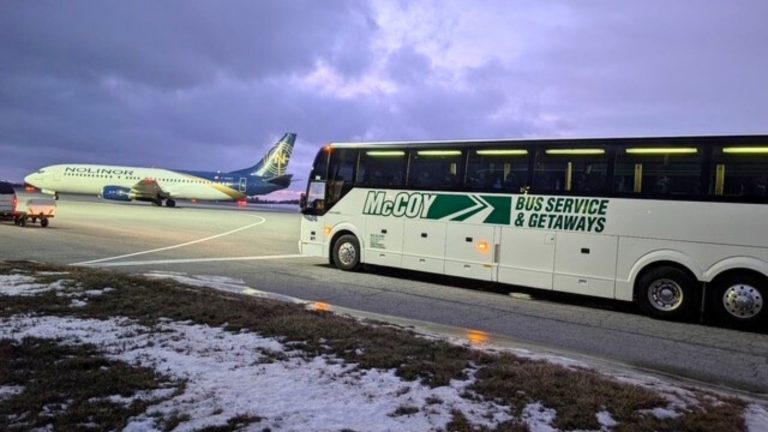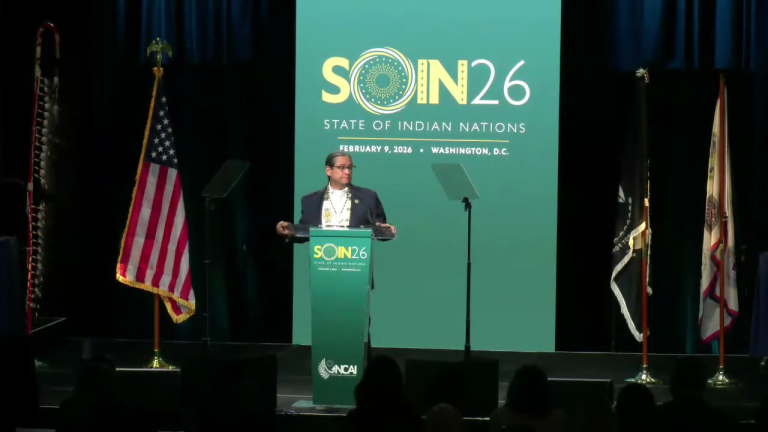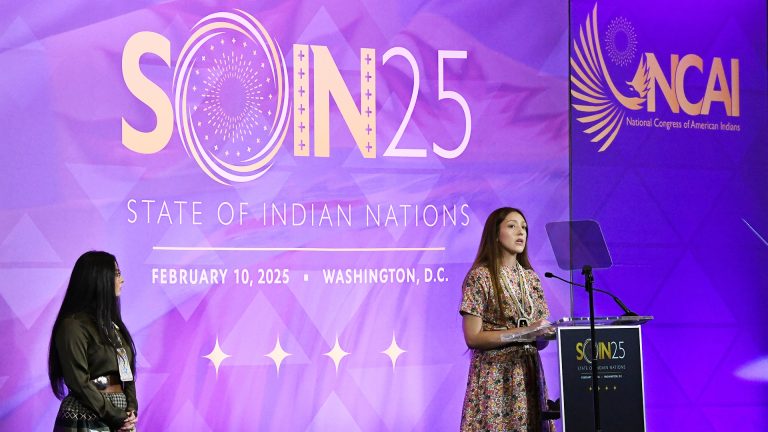By Christine Trudeau
The election of Ruth Buffalo to the North Dakota legislature is already paying dividends for Native issues in the state. Buffalo is the first female Native American Democrat elected to the state’s House of Representatives.
Just months into her first term as state representative, North Dakota joined a handful of states allowing high school students to wear traditional regalia for graduation ceremonies. It’s the first bill introduced by Buffalo to be signed into law.
“Students can wear their eagle feathers and eagle plumes freely during their graduation ceremonies,” Buffalo said. “So, we’re pretty excited about that. Kind of sad in a way that needs to be enacted into law.”
Buffalo is a member of the Mandan, Hidatsa, and Arikara Nation. The regalia law is an example of what she says is unique about the perspective someone like her brings to elected office.
“It’s so important to have Native women in the legislature because we do bring, not only an Indigenous lens, but we understand the struggle that our ancestors have gone through and also as have mothers we have this inherent right to protect our communities,” Buffalo said
Buffalo is also the prime sponsor for several items currently in the legislature aimed at the issue of Missing and Murdered Indigenous Women. If passed, the legislation would build data repositories for all missing persons, including a designated one for missing Indigenous people.
Buffalo was elected in south Fargo, a district not largely affected by the state’s controversial voter I.D. law requiring a physical address. But she ousted the incumbent Republican, Randy Boehning, the original sponsor of the law. Inaction on the voter I.D. law since the election has Buffalo concerned, as rural residents–many on reservations with a housing shortage–continue to have difficulties getting state verified physical addresses.
“It’s not only in our tribal communities…where the right of the people is being challenged by our current legislature,” she said. “So, there’s much work to be done and making sure that every citizen is able to exercise their right to true democracy.”
Buffalo says even though the voter I.D. law remains in effect, the last election proved Native people can still be a strong voting bloc. She and other voting rights advocates say it may even inspire other Native candidates to step forward in 2020.
Until then, Buffalo said, she hopes to engage Native voters and to help promote the visibility of Native people at in the political process.
“I want to invite everyone to come to the Capitol every day, just encouraging everyone to continue to ask questions, continue to stay engaged and extending a welcome to our elders to provide prayer,” she said. “We begin each of our sessions with a prayer. So it would be great to have Native American elders provide prayer here at the Capitol.”
(Photo: Ruth Buffalo right after taking the oath of office for the North Dakota House of Representatives; Courtesy–Lea Black Photography).
This story is a joint project with National Native News, Prairie Public Broadcasting and Solutions Journalism Network looking into how a potential setback for tribal members in North Dakota turned into a win for tribes, voters and Native candidates.



